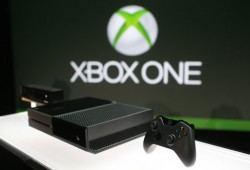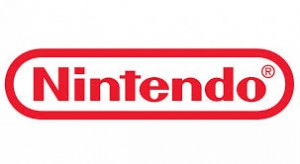Entry of Xbox, Nintendo and PlayStation in China
In January 2014, China has lifted a 14-year-old ban on foreign gaming consoles: based on the concern that it might have negative impact on children, the ban was lifted within Shanghai’s free-trade zone, and consoles, can now be sold all across Mainland China. Our focus is on the market entry strategy of Xbox, Nintendo and PlayStation in China.
Xbox, Nintendo and PlayStation set up China market entry strategy
A frenzy after the announcement, the largest gaming consoles company have made their moves : although under-developed right now, the video-gaming-console market in China is promising and appealing for internationally renowned firms willing to give a try at prompting Chinese players, used to play on their personal computers or tablets, to migrate towards video gaming consoles. As such, Microsoft with their Xbox, Nintendo and Sony with their PlayStation have carefully begin to craft their Chinese market strategy.
Xbox enter China market through local partnership
Microsoft first announced they’d begin selling their Xbox One video-game console through their partnership with BesTV New Media Co, and aiming at establishing « an innovation program that will enable creators and developers to build, publish, and sell their games on Xbox One in China ». In July 31, they’ve begun taking preorders through Tencent’s WeChat & QQ, competing with Alibaba through this promising partnership. Consoles will be delivered starting from September. With a deposit fee of 499 RMB, and their preorder method, Microsoft has clearly defined their target clientele: young and sophisticated Chinese consumers, well-off enough to afford paying for the Xbox One (500$ in the U.S., it’s a price range that’s quite high in China) and already using their smartphones or tablets to play. The firm will most likely continue its market strategy in this direction, launching games and advertisement campaigns targeting essentially this clientele.
Nintendo relies on innovation to suit Chinese consumers patterns
After Microsoft’s announcement, Nintendo also stepped up its game : CEO Satoru Iwata claimed that they « wanted to make new things, with new thinking rather than a cheaper version of what [they] currently had, the product and price balance must be made from scratch. » Indeed, though China might become the largest video-game market in the world, it seems not yet ready to take on the sophisticated and pricey consoles sold in the West: right now, most players are used to playing on their phones, tablets and personal computers, and are quite satisfied with it. In order to appeal to them, video game console companies must try to innovate and create new content that will ease them into the video gaming console world. That’s Nintendo’s strategy, and it seems their new console will target all BRIC countries, not only China. Launching the one machine that would suit the newly born Chinese video gaming market could help the company cover the massive losses they experienced due to their western launch of the Wii U, and hopefully announce a brighter tomorrow for Nintendo.
PlayStation will face the piracy challenge in China
As for the PlayStation in China, Sony agreed to form two ventures with Shanghai Oriental Pearl Group Company, which would be held responsible for making and selling their trusty consoles. Following Nintendo’s take on the Chinese video gaming console market, many thought PlayStation in China would take a similar turn ; however it’s still unclear whether their market strategy will be closer to Nintendo’s or to Microsoft’s. What’s clearly stated though is that Sony will take on the piracy challenge head-on: console makers will be faced with the unavoidable issue of having to sell pricey hardware to a generation of gamers used to a free online model, and tempted by easy piracy.
Through diverse market strategies, the top three largest video gaming companies have delved into the new and appealing Chinese video gaming market, hoping to take on the difficult challenge that might eventually crown them as the ruler of the largest video game console market of the world.
[More about Market entry strategy in China]








